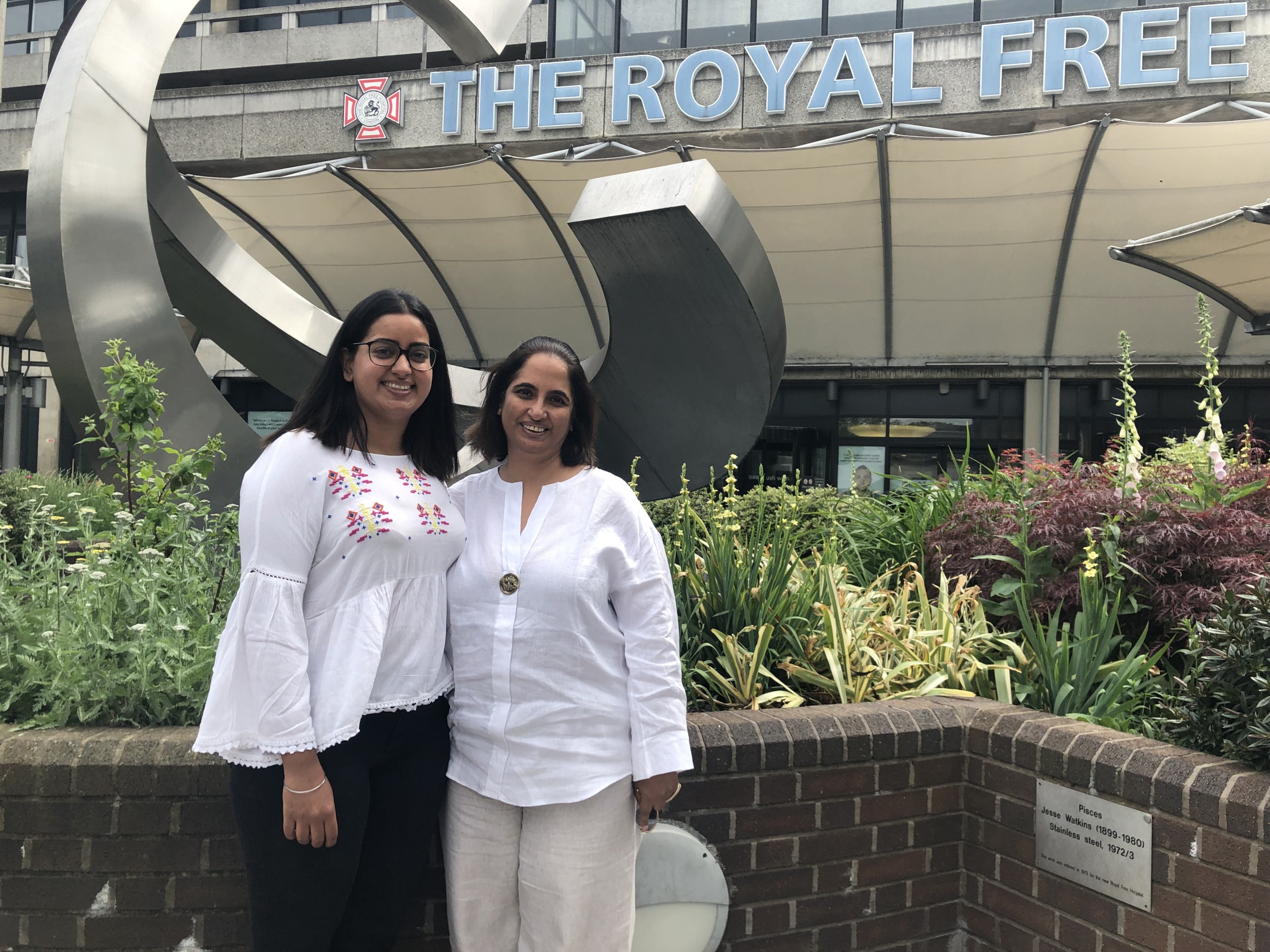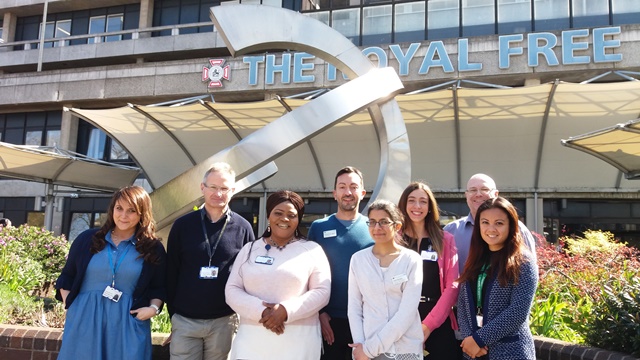
A dietician with an auto-immune disease has become the first person in the UK to be recruited on to a trial aimed at testing a new vaccine designed to protect kidney transplant patients from a life-threatening virus.
Dhankiran Gujral, 26, from West Hampstead, who received her new kidney from her aunt Sandeep Gurgaom, is now ready to plan her upcoming wedding after a successful transplant operation at the Royal Free Hospital a few weeks ago.
Cytomegalovirus (CMV) is a common infection that is dangerous for patients with low immunity such as transplant patients. Patients undergoing a transplant need to take immune-suppressing drugs so their bodies do not reject the donor organ, leaving them at risk from this infection.
Around 70% of the population have CMV – so there is a high risk the donated organ will contain the virus and approximately a third of patients get some level of virus in their blood after the transplant.
Patients who are CMV negative – which means they have never had the virus - are particularly vulnerable to the infection arriving with the new kidney as they have very little immunological defence. But even if the patient has already had the virus, the patient can get a new strain from the donated organ. Furthermore, if the transplanted kidney does not contain the CMV virus the patient’s own CMV virus might reactivate because their immune system is suppressed. There is antiviral treatment to control the virus but sometimes the virus becomes resistant.
The vaccine works by stimulating the body’s immune cells to fight against the virus.
Dhankiran has an auto-immune condition which damages kidney tissues and this is the second transplant she has undergone. Her first kidney, which Dhankiran received when she was 15, was donated by her grandmother.
Following her transplant, she is looking forward to planning her forthcoming wedding and getting back to her job as a dietician.
Dhankiran said: “When I heard about the study I was happy to take part. Even if it doesn’t benefit me or I receive the placebo I wanted to take part because I know that in the past someone like me has done something similar to benefit others. If I can help others then that is a positive that I can take from this. Prior to the transplant I had two injections, a few weeks apart, to deliver the vaccine but it was nothing too onerous.”
Dhankiran and Sandeep, who travelled from India to donate her kidney, are now recovering well.
Dr Mark Harber, principal investigator for the study at the Royal Free Hospital and consultant nephrologist, said: “Most people whose immune system works well to suppress the CMV infection have no symptoms or can have mild illness such as fever, sore throat, fatigue and swollen glands. However, if your immune system is weak, CMV can affect your lungs, gut, eyes or other organs and can cause severe damage. A patient could even potentially lose the function of the transplanted kidney due to the infection. This study is to see how well the vaccine HB-101 could protect patients from CMV infections after kidney transplantation and also to understand any side effects of HB-101.”
The study is being conducted at a number of centres worldwide. About 150 men and women will take part and each patient will be in the study for about 15 months.The trial is "blind" - patients do not know if they have been given a placebo or the vaccine.
Virologist Professor Paul Griffiths and Dr Mark Harber, both based at the Royal Free Hospital, have been involved from the very early development of the treatment.

The Royal Free London's renal research team
 Translate
Translate